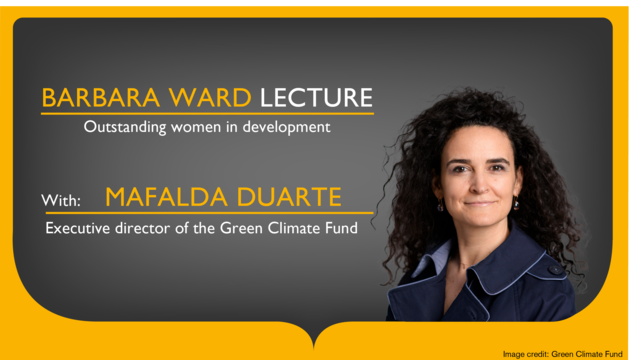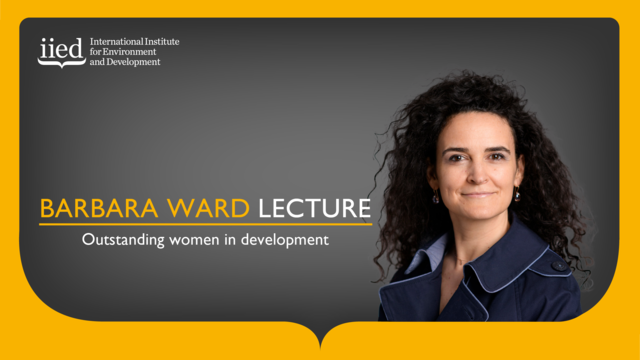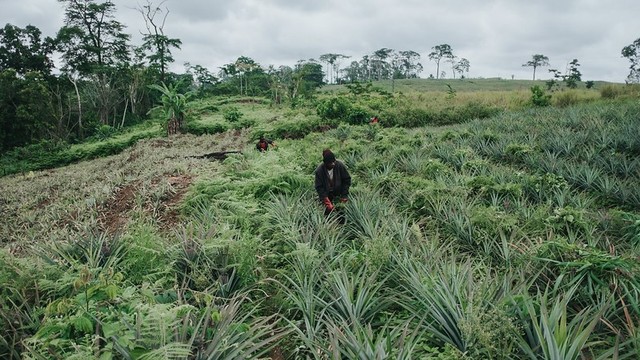New technologies and the involvement of the private sector are needed to tackle climate change emissions and power the world said Christiana Figueres, Executive Secretary of the United Nations Framework Convention on Climate Change, in a lecture today. “Don’t depend on governments,” she said, “because they can’t deliver 100%.”
“We are moving in the direction of a low carbon society – but not fast enough,” she said. The world passing the (US) $1 trillion mark in clean energy investments in technologies such as solar and wind power plants and bioenergy production since 2004, shows that we’re on the way, she said.
“We can all see the evidence of climate change,” Figueres said, warning that rises in greenhouse gases had the potential to undo international development gains made. Rio+20, the upcoming UN conference on Sustainable Development, will be a “very powerful force of wind in the sail” to help the economies of developing countries grow, but this growth needed to happen with a lower carbon footprint than developed countries.
In response to a question posed by Antigua’s High Commissioner on how the country could move off the “path” of fossil fuel dependence she said it could produce lots of solar and wind energy if the technologies weren’t so prohibitively expensive. Co-operation between the public and private sector to develop cheaper renewable technologies and technology transfer to southern countries are critical to making this happen, Figueres said.
Whether America led on the development of renewable energy technologies or ceded progress to other key renewable technology players was a pressing question. Was “the US electorate willing to let history progress in such as way that it is China and Europe that are going to produce and benefit from the clean technologies we are going to be using? Is the electorate willing to let the competitive edge [of developing renewable technologies] go to China or Europe, or would they prefer to be the leaders of technology? That is the question they have to answer.” Referring to the current Republican presidential primary candidates she said: “If they have anything in common it is that they say they don’t believe in climate change.”
She outlined steps that countries should take to carry out their own “energy revolutions” starting with energy efficiency – the “low hanging fruit” where there are “huge gains” to be made. Next up: investment in renewable energies, which would be increasingly available when priced more competitively. Last: tackling emissions from fossil fuels and shale gas. Whether or not to use nuclear power was a decision each country needed to make.
Despite her comments on the US Republican candidates, she said the universal political will to act on climate change was tangible. She was upbeat on the outcomes of the climate talks held in Durban, South Africa in 2011: “There is no doubt in my mind that Durban delivered beyond expectations”.
Referring to her revolutionary roots – her father was President of Costa Rica three times and is considered the founder of modern democracy in the country – Figueres said fewer words and more action was needed: “We have all put more energy into reading and writing than on acting on sustainable development.”
Christiana Figueres was speaking at IIED’s Barbara Ward lecture named after the pioneer of sustainable development. Figueres quoted Ward: "We have forgotten to be good guests, ...to step lightly on the earth."




